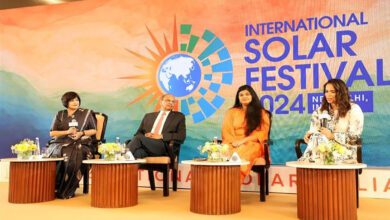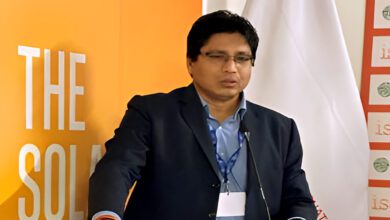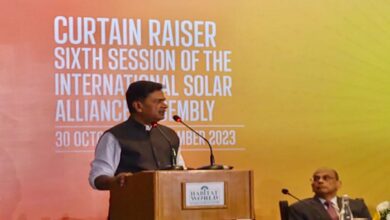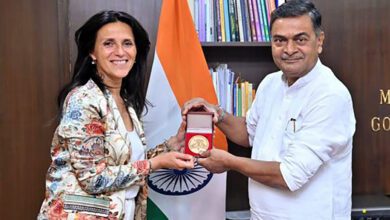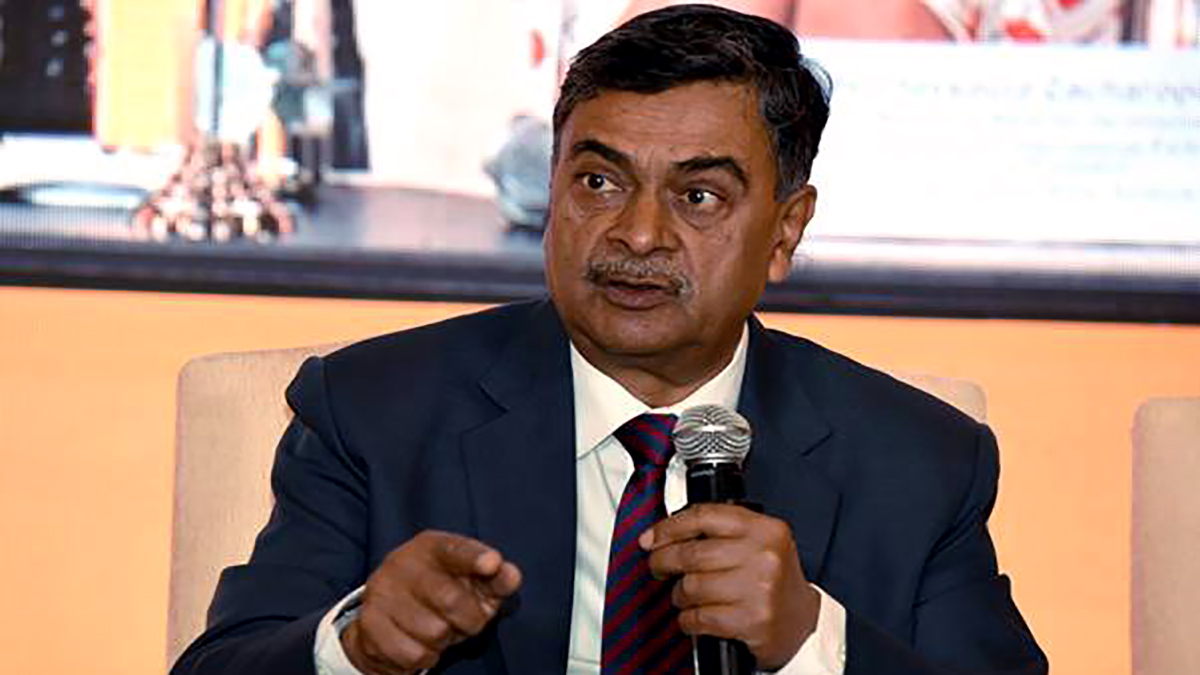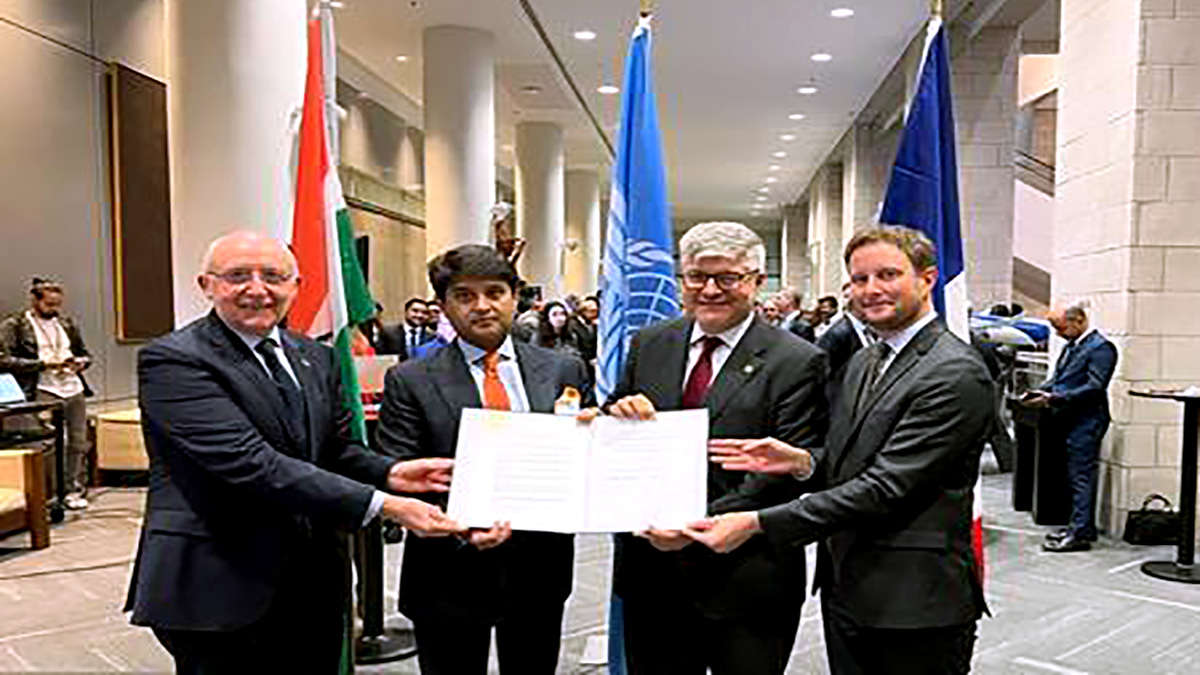The seventh session of the International Solar Alliance (ISA) Assembly is currently underway in New Delhi, where significant developments are shaping the future of global solar energy. In an important announcement today, Ashish Khanna from India was selected as ISA’s third Director General. Other candidates for the role included Wisdom Ahiataku-Togobo from Ghana and Gosaye Mengistie Abayneh from Ethiopia. This leadership transition marks a new chapter for the Alliance as it builds on a robust foundation established under the tenure of the outgoing Director General, Dr Ajay Mathur.
Dr Mathur, who has led ISA since 2021, expressed his confidence in Khanna’s ability to take the Alliance to new heights. “As I step down from my role, I want to take a moment to warmly welcome Ashish Khanna to this incredible journey ahead. Serving in this position has been an honour, and I am confident you will bring unique energy, vision, and passion to this office and role,” he said. Dr Mathur’s leadership has seen ISA achieve numerous milestones, including an impressive increase in Member and Signatory Countries, totalling 103 and 17 respectively. His tenure saw the establishment of significant projects, such as the Global Solar Facility, STAR-Centres for capacity-building, and the SolarX Startup Challenge. Dr Mathur’s accomplishments provide a solid base for Khanna to expand ISA’s reach and impact.
Khanna, the Director General–Designate, outlined his vision for advancing ISA’s mission. He emphasised the importance of moving from “what” to “how,” as many countries already recognise the need for solar energy but seek support in achieving their goals. He intends to build on successful initiatives and strengthen existing partnerships, while promoting collaboration across international platforms. Khanna noted, “Our focus should be on purity of intent and passion for results, fostering a collaborative spirit among countries to drive a solar-led transition.”
In addition to selecting a new Director General, the ISA Assembly elected the Republic of India as President and the Republic of France as Co-President for the 2024–2026 term. While India was the sole candidate for the Presidency, France secured its role over Grenada in a contested bid for the Co-Presidency. The Assembly, as the ISA’s highest decision-making body, brings together representatives from each Member Country to guide the implementation of ISA’s Framework Agreement and coordinate actions to support its objectives. ISA Assembly meetings are held annually at the ministerial level and play a critical role in shaping ISA’s direction.
The Assembly’s focus this year is on addressing three essential challenges facing the global energy landscape: energy access, energy security, and energy transition. Through discussions and deliberations, the Assembly is working to identify viable solutions for these critical issues, which affect millions worldwide. As part of its ongoing governance structure, ISA also appointed Vice Presidents from each of the four regional ISA groups. Ghana and Seychelles will represent the Africa region, Australia and Sri Lanka the Asia and Pacific region, Germany and Italy the Europe and Others region, and Grenada and Suriname the Latin America and Caribbean region.
Under Dr Mathur’s leadership, ISA’s three primary work areas—advocacy and analytics, capacity building, and programmatic support—achieved substantial success. Key achievements include aggregating 9.5 GW of solar project proposals, initiating landmark projects like a 360 MW solar PV bid in Cuba and a 400 MW approval in Ethiopia, and advancing feasibility studies in multiple countries. ISA’s flagship STAR-C program has trained over 900 professionals and plans to expand with ten additional centres. Knowledge dissemination initiatives such as the Knowledge Series, Solar Data Portals, and Green Hydrogen Innovation Centre have enhanced ISA’s capacity-building efforts. Noteworthy publications like “Easing of Doing Solar” and “World Solar Reports” highlight ISA’s dedication to sharing best practices, while the recent report “Unleashing the Role of Solar” underscores the economic, social, and environmental value of solar energy adoption globally.
ISA has also been instrumental in creating innovative financial tools. The Global Solar Facility, launched at COP27, seeks to unlock $50 million in commercial capital for underserved regions, with its inaugural project set in the Democratic Republic of Congo. The SolarX Startup Challenge, also launched at COP27, supports 50 scalable solar solutions across Africa and the Asia-Pacific, contributing to ISA’s growing project pipeline.
The ISA Assembly is expected to conclude with discussions and resolutions that strengthen global collaboration on solar energy, enhancing ISA’s position as a catalyst for the solar transition. The Assembly’s governance structure, consisting of the Assembly, Standing Committee, and Regional Committees, provides a cohesive framework for decision-making. Through these bodies, ISA is set to expand partnerships and increase cooperation among Member Countries, furthering its mandate to facilitate a cleaner, more sustainable energy future.
In his parting remarks, Dr Mathur said, “I would like to be remembered as the Director General who provided some degree of direction for the globalisation of solar energies while in office at the Alliance.” As the seventh session of the ISA Assembly continues at the Bharat Mandapam in New Delhi, Member Countries are poised to reaffirm their commitment to advancing solar energy as a solution for pressing global energy challenges.






